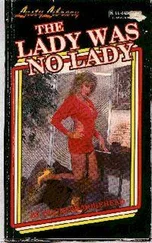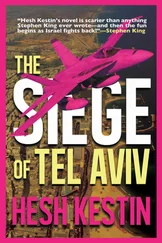I put my suitcase down to the side, then sit on a shaded piece of concrete near to where the three boys still sit — chatting, laughing, and smoking up a storm.
A little after 9 am groups of people start to get dropped off in front of the main gate. There are men and women of all ages, and children too. They begin to take their places here and there around the plaza as if they were permanent refugees. They fill the place with the same question I had been asking — and over and over again, they receive the same old answer: ‘God only knows.’
A large bus enters the plaza and parks not too far away. The driver points the front of the bus toward the crossing so he can watch for things happening there. He backs up the bus until it is almost pissing against the cement wall.
The driver does not get out. He does not start asking people the same old question, and he does not wait to hear that the only one who knows anything here is God. Most likely, he has already heard it all before.
Within an hour, the shaded areas fill up with crowds of people and the plaza has turned into a vast open-air waiting room. Under the beating sun, the soldiers shout louder and louder at the crowds to remind them that they alone hold the keys to the gate.
A sky-blue Opel enters the plaza and parks near the bus. When the rock under my butt gets tired of complaining, I give it a rest. I start walking back and forth, dragging my suitcase behind me from one spot to another. I listen in to the conversations between the newcomers and the others around the plaza. Some of them find a place to sit under the sunshade. Others make a spot for themselves on the ground in the shade of the long wall just behind it. Others sit in the shadow of the Opel. Three women get out of the bus and sit in its shade while their children play under the sun.
A young man in overalls comes up. Another man runs over to him and they exchange some words before the first man disappears again. The second one comes back and begins to make an announcement to everyone: ‘That man works here — and he told me that the soldiers found a bomb in a paper bag.’
A chunky man in his thirties walks up and asks, ‘What are you saying? Really?’
‘God only knows — but that’s what that guy I was talking to just told me.’
My whole trip, exploded by a briefcase. If it’s true, they’re not going to open up the gate for me or anyone else today.
From behind the Opel, a voice calls out: ‘Don’t believe it, folks. There was nothing but tomatoes in the briefcase. Four big tomatoes. One of the workers accidentally left it at the main gate.’ No one can see who says this.
A woman in a hijab yells out, ‘Fuck them! They shut down the entire border crossing on account of four goddamn tomatoes?’
‘They made one of the Palestinians who works there pick up the case and empty it out. And then they made the poor guy take apart each tomato, picking out the seeds one by one! I can’t help thinking that those tomato bombs would have been perfect with okra.’
I laugh at the kitchen explosive, and at the rumours that fly around faster than facts could ever do. I laugh at everyone standing around. One of them blurts out: ‘Since the bomb was just some tomatoes, they’ll have to open up and let us through now.’
‘If only every bomb were a tomato — and not the precious blood of our children,’ comments an old woman. She sounds like she has lost someone. A small waking dream begins to stir in my mind — small, no bigger than a tomato seed.
But the crossing remains as closed as it was before, even as the crowds of arrivals grow and grow, and the flow of conversation returns to its usual channels.
Behind the guard gates and the kiosk, a small truck enters the plaza and comes to a stop in front of the concrete barriers by the main building. Soldiers run into the plaza behind the guard booth, in a way that makes everyone nervous. A military jeep surges from behind the thicket of trees and parks close to the barriers. Two soldiers jump out and disappear behind the truck. Two men and a woman in uniform walk into the plaza. One of them is carrying a video camera on his shoulder. A young man who had been sitting by the wall stands up and walks over to me. A transistor radio dangles from his hand. In a trembling voice he says: ‘Israeli radio just reported that they caught a girl from Jabalia Camp wearing an explosives belt.’
All my hopes of them opening the crossing go up in smoke. The news tears my dreams to shreds, and I start to envy Adel El-Bashity for how easy he had it. No matter the lengths to which a narrator goes in order to imagine something, he will never reach the shore of truth. If your understanding of an Israeli border crossing is limited to what you hear or try to imagine in your mind, you will only ever glimpse the outlines of a shadow — which could be shorter or longer depending on how much light you cast on it. But the truth itself: that is a bitch on the imagination and on anyone who wants to tell a story.
It is now 11:30. The June sun has begun to shed its morning gentleness to announce the pending arrival of a scorching afternoon. The shady spots have disappeared. There is not even enough shade now for a quarter of the people standing there.
I begin to look for a shady spot, one for myself and one for my shadow, which has shrunk so small that were I to lend it out, it would not cover a soul. I head toward the bus and shyly lean up against it, by the front door. Just as the years of my youth now lean upon my old age, I rest my head on the side of the door.
The driver sits calmly behind the steering wheel, like a feudal lord who owns vast orchards of shade. He is engrossed in conversation with a young man sitting in a seat directly behind him.
The driver suddenly turns to me and, with a note of pity in his voice, says, ‘Why are you standing outside, sir? Come on in and have a seat. The sun out there will roast your brains. It looks like you’ve already come a long way just to get to here.’
I do not hesitate to accept his invitation. In fact, since resting my head against the door, I had been hoping he might say that. This is my chance to take a break from the strain of standing and pacing back and forth all morning. I might even join their conversation and kill some time — and maybe kill this wait that has been killing my every hope of crossing sometime soon.
I climb into the bus and take my place in the first seat to the right of the driver, just behind the door itself. To break the ice, I ask: ‘Where’d you all come from today?’
‘Jerusalem.’
‘The bus is empty — is that usual?’
‘We’re a company that provides services for the UN. We work by contract. We take people to visit family members in prison. On Friday I go to Gaza to pick up families who’re going to visit people in Beersheba prison. But if the crossing doesn’t open in a couple of hours, we won’t be able to do it. What a waste of my time and theirs. And those poor people — they’ve been waiting so long for this trip. Now they’ll have to go through the same rigmarole just to get another permit.’
The driver’s mobile phone rings, he answers it with his left hand. His keeps his right on the steering wheel, ready to go at any moment. ‘No, we’re still at the checkpoint. I’m sitting here in the bus with these good folks. We’re still waiting for them to open up so we can go through. They’re saying there was an attempt. Tell him to go back to the West Bank. Tell Abu Khalil to go to Qalqilia and bring everyone. No, no — if they don’t open up in one hour, two maximum, I’m going back. What else can I do? Goodbye. No, don’t worry — I’ll bring them with me from Jerusalem. Salaam .’
He hangs up. A short, dark-skinned young man walks up to the door. He sticks his head in and comments nervously: ‘If there really was a bombing attempt like they say, then the crossing is going to stay shut all day long. It might not even re-open until after tomorrow.’
Читать дальше












